INTERVIEW: FIRE & DUST MEETS SKYLAR J WYNTER
Trauma, physically changes the brain’s neurobiology
Neural pathways directing memories to be parked
In the underground carpark of the past
Have been bypassed
So, if you startle me, make me feel uneasy, behave unpredictably
It’s like déjà vu and BOOM!
I freefall without the bungee cord into adrenal system overload
My brain tries to instil reason, screaming all the reasons why this
Is not the same thing
As THAT THING…
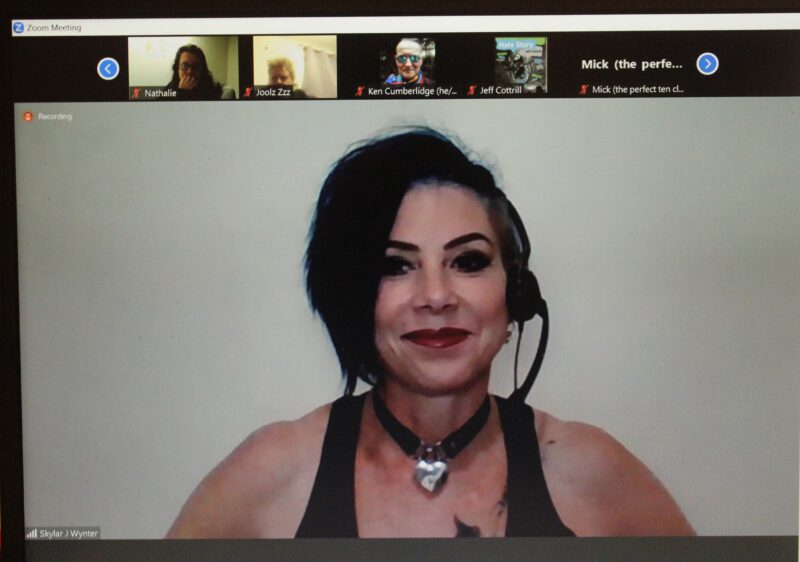
Skylar J Wynter is an Australian author and poet living in the Perth Hills. She completed the manuscript for her first collection, Pieces of Humanity (a mixed works collection of poetry, flash fiction and short stories), after being awarded a place on the 2020 Katharine Susannah Prichard Unpublished Author program. Pieces of Humanity was then picked up by Daisy Lane Publishing and released in October 2020 to coincide with Mental Health Month. Since returning from her whirlwind ‘Decent Beings’ tour of the UK late last year to promote her second book – SHINE, a collaborative project of art created by Neshka Turner and poetry penned by herself – Skylar has been busy trying to master the art of living a balanced life. Still no closer to achieving this state of utopia, she at least managed to secure herself a role in spoken word show The Embodiment of Women, perform in October at Imaginarium, win the WA state round of the Australian Poetry Slam, perform in the National Slam Finals at the Sydney Opera House, write a couple of new poems and quit a very taxing day job. She loves a great book, a sunny day and witnessing humans behaving decently.
In January 2024, Skylar was the guest headliner at our virtual Fire&Dust poetry night, where her brilliant poetry set was well-received by the crowd. We caught up with her after the gig, to ask a few questions…
HCE: Tell us a little about your background and journey as a writer so far. What inspired you to start creating and performing poetry?
SJW: As a child I would lose myself for days in books and it seemed only natural for me to write stories and poetry of my own. Usual story; I wanted to be a writer but it did not pay the bills so I left it behind for many years for the purpose of “Adulting”. After a traumatic incident I could not work and so found myself writing again. I had no idea that it was a thing to perform poetry. I just fell into it after a fellow author asked me to perform a few poems at her book launch. Then Covid hit and poetry events went online and suddenly a whole world of poets and poeting was available. I attended a few and was so inspired by everyone who shared my writing just started pouring out of me.
HCE: A lot of performance poets are attracted to having a pseudonym, which is interesting as total anonymity is rarely possible when you’re appearing live at events and across social media. Do you think of Skylar J Wynter as more of a pseudonym or an alias? Were you writing as Skylar from the very start, or did the idea develop later alongside yourself as a poet?
SJW: From the moment I started writing my first novel I came up with a pseudonym, but when I was asked to perform for the first time I quickly realised that it would be impossible for me to perform in public unless I adopted/created an alter-ego. This allowed me to create some distance from the self that was too scared, too self critical, to perform. It also provided my family with privacy and yes meant that there was always a definitive line between my art and my private life.

HCE: Who is your work aimed at – do you have an ideal audience in mind when you’re putting a poem together?
SJW: I see myself as a conduit. I say that with some hesitation because it sounds cliché, but it is the honest truth. I rarely ‘sit down to write’ with pre-ordained ideas about the audience I want to reach or even the topic I want to explore. Generally I am just busily going about my life and little ideas or lines come to me and then one day, all at once, a whole poem will just be there and I get it down as fast as I can. I just have an inner faith that although my own trauma allows me to write authentically and with true feeling, generally the poem is for someone out there who needs to hear it. I trust that at some point that person will have access to it by being at an event or reading it in a book. I see my role as just getting the words from the ether into physical form. The rest I tend to leave up to the Gods.
HCE: Who or what would you say are the biggest influences on your writing?
SJW: Essentially, I am a story-teller. It just so happens that most of my stories end up being written with rhythm and rhyme. I grew up hearing the works of story-teller poets such as Banjo Paterson and it just felt so right to me that story be told in that fashion. From a bigger perspective, people in general inspire and influence my writing. Every time I hear someone’s story or hear of injustice or hear random facts about current events it influences my writing.
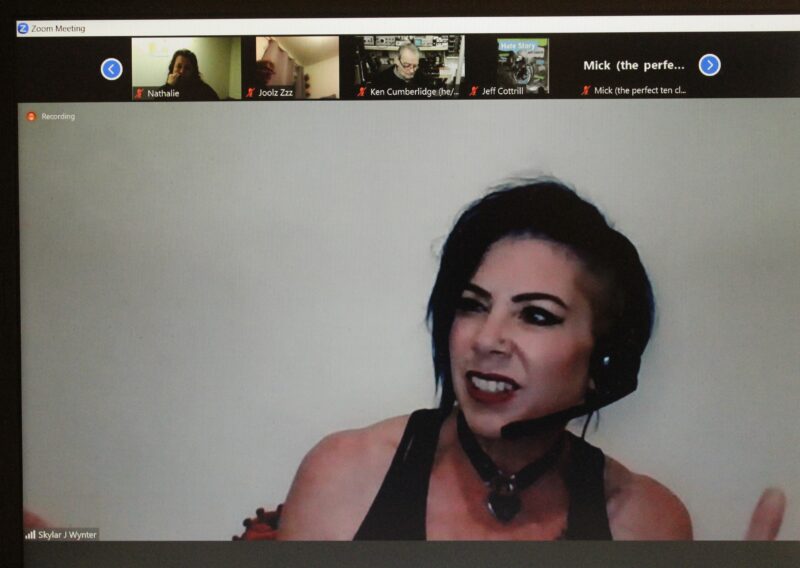
HCE: What sort of themes can readers expect to encounter in your new collection SHINE, and what messages(s) do you hope they take away from it?
SJW: SHINE is based on The Hero’s Journey and is made up of three parts. The first part, Adversity, is a body of works based on the theme of human struggle. There are infinite causes of struggle and the poems in this section are representative of just a tiny fraction of those. Part two is called Enlightenment, and the poems and artwork are a reflection of those ‘AhHa’ moments we all experience that result in us having more understanding, compassion, forgiveness of and for ourselves and others. This brings the reader to part 3, Transformation, which reflects on the joy of being transformed by all the adversity and ‘AhHa’ moments we encounter.
HCE: On your Q&A page with Daisy Lane Publishing, you mention needing a workspace with a nice view. What sort of effects do you find this has on your writing practice?
SJW: I need absolute peace and quiet and serenity when I sit and write. I can’t imagine having to write something staring at a blank wall or not having a window to look out of. Words seem to flow far more easily for me when my brain is occupied elsewhere…so being able to look out a window and get lost in what is going on out there allows words to flow onto the page.
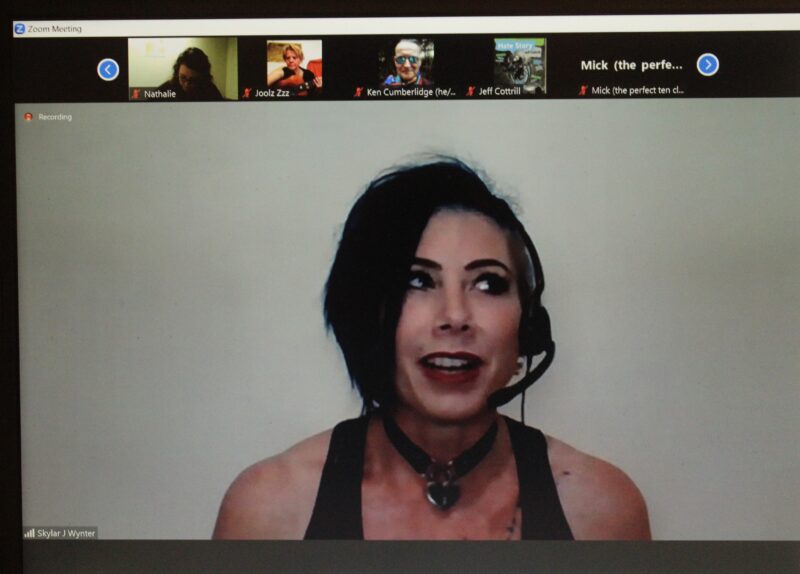
HCE: How did it feel winning the WA state round of the Australian Poetry Slam. Do you enjoy that competitive side of the spoken word scene?
SJW: Winning the WA state round of the APS was incredible and meant I got to travel to Sydney and perform at the Sydney Opera House, which was a childhood dream of mine. (I wanted to be an actor…of course) I always find it amusing to look back on life and think on all the things we dreamt of doing as children and how those things come to pass over the course of time without us ever planning the trajectory to getting there. Proof, if any is required, that the universe is conspiring at all times to give us what we want.
HCE: Is there a difference, in your opinion, between poems that are good candidates for ‘the stage’ and poems that work well ‘on the page’? Or do you not segregate your work this way?
SJW: That is a really great question. I think there is a difference between performance poetry and poetry that does not need to be performed for it to hit home, but I don’t know that I could explain or quantify how to write one or the other. I just know that I have had pieces that are in one of my books and when I have performed them, people have come up to me and said that my performing of that piece leant a whole new dimension to it for them that they just had not gotten from the reading of it.
HCE: Some of your poetry explores the darker side of life in a raw and honest way – is this an emotionally draining thing to do? What is the top piece of advice you would give other poets for tackling heavy/personal topics in their writing?
SJW: I would say that for me, the writing of a piece is not draining it is more the reading and performing of it that can be very emotional. I have learnt that if I choke up during the reading of a piece then it is too soon to perform it. I now spend quite a bit of time reading and learning a new piece and doing all the crying and emotional outpouring that comes with it in the privacy of my home. I now never perform a piece in public until I can do it without the emotionality. That is not to say I perform it like a robot I just mean I get to a point where I know I have processed the emotions and feelings it brings up for me to a point where I can say the words with great feeling but without the attachment to the feeling. I think this is much better for myself and the audience. You want people to get a sense of a feeling, not walk away traumatised.
HCE: Was SHINE your first time working with artist Neshka Turner? Can you tell our readers a little about the collaborative process for creating an illustrated book of poetry?
SJW: Neshka is an exquisite human being who bounced into my life when our kids ended up at a new school together. I was fresh out of my trauma and very reclusive but she insisted we catch up for coffee and would not take no for an answer (this is very Polish lol). I discovered she was an artist when I went to her house and saw walls full of the most incredible paintings. When I was offered my first publishing contract it was a no brainer to ask her to do the cover. That was Pieces of Humanity. I had been dreaming up a coffee table art and poetry book and it was a no brainer to ask Neshka if she would create all the artwork.
The process for us was very smooth and organic. I think that because she had been to so many of my performances, she had a deep sense and understanding of the work. We played around with the idea of her creating an art piece and me writing to it but, in the end, she wanted to create art to the words.
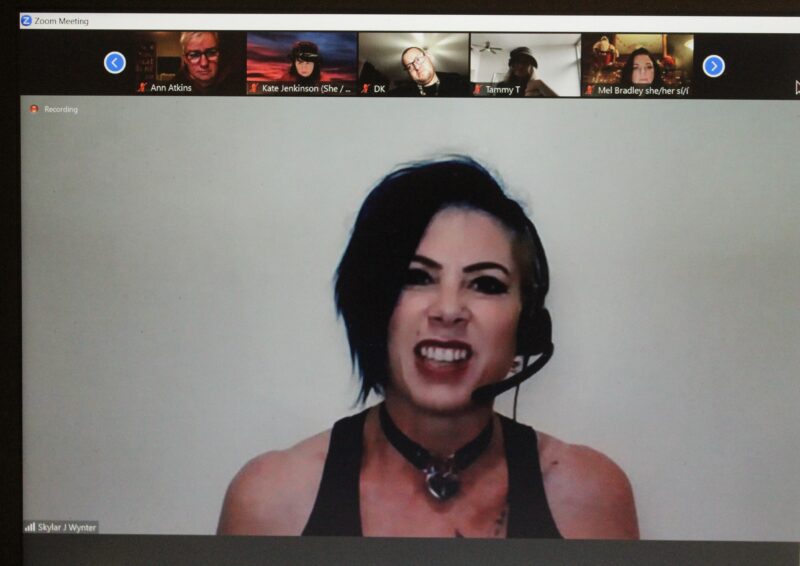
HCE: What’s next on the horizon for you? Are you already working on a new collection/project or booked for upcoming performances?
SJW: I do have a third book mostly written, but both Neshka and I have been very busy just doing life and adulting so it will be some time before that one becomes more than just word files on my computer.
I have been booked to do a feature set at the Moon Café on the 16th March for an event called Women Scream. This is a hybrid event and will be both live and on Zoom, and I have been booked to do an online feature set on June 26th for Accessibility Arts which I am looking forward to immensely.
HCE: What’s the best way for people to keep connected with you and your work, or contact you for bookings?
Website Instagram Facebook (SJW) Facebook YouTube Linktree
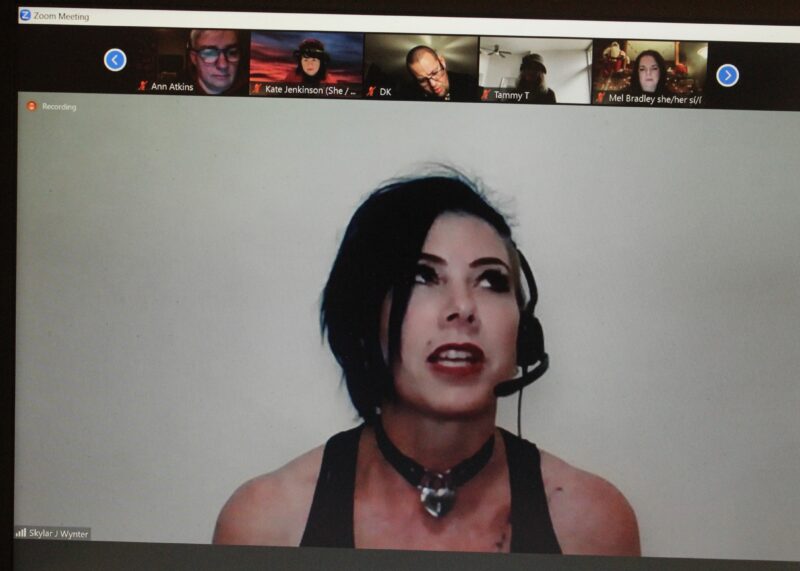
HCE: Is there anything we didn’t cover that you’d like to share with our readers?
SJW: No. I think they now know as much about me as I know about myself. 😊
SHINE is available online direct from Dragonfly Publishing as well as other bookshops and retailers. Alternatively, visit Skylar’s website to purchase both collections from the poet herself.
